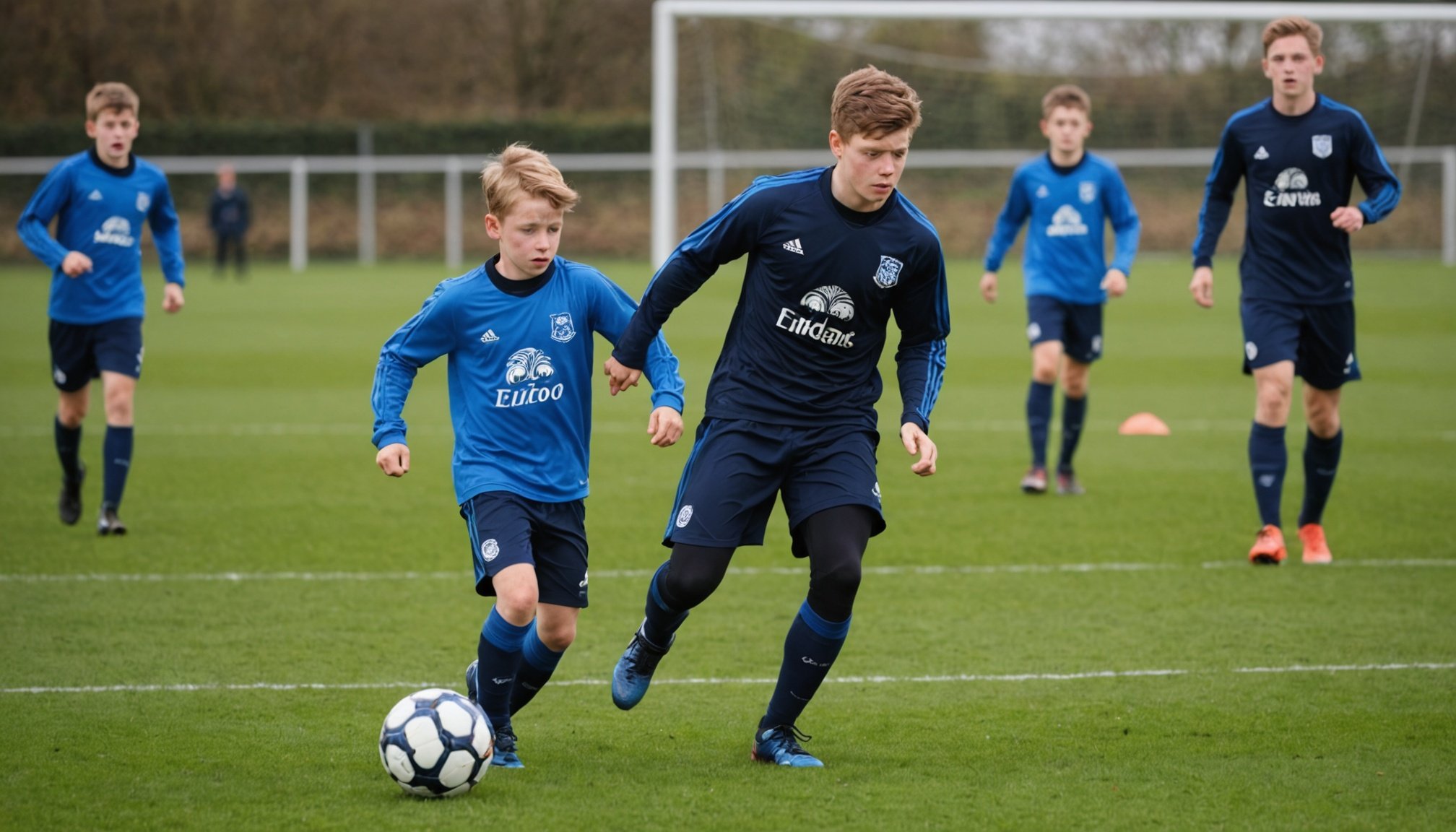As football continues to be a beloved sport across the United Kingdom, understanding the distinctions in training regimes between youth and professional players becomes increasingly vital. While both groups aim to elevate their performance on the pitch, their training methodologies, goals, and intensity often differ significantly. Providing insights into these variations not only enhances the comprehension of the sport but also underscores the importance of tailored developmental strategies for aspiring young talents and seasoned professionals alike.
The Role of Developmental Foundations in Youth Training
At the heart of youth football training in the UK lies a strong emphasis on building foundational skills. Young players are in their formative years, both physically and mentally, necessitating a training program that prioritizes skill development over specialization. This approach ensures that they develop a comprehensive understanding of the game while honing their technical abilities.
This might interest you : What are the key psychological strategies that football coaches can implement to enhance team morale during tough seasons?
Focusing on core skills such as ball control, dribbling, passing, and shooting, youth training emphasizes repetition and consistency. Coaches aim to instill discipline and teamwork, fostering a passion for the sport while maintaining a fun and engaging environment. This balance is crucial as it prevents burnout and encourages sustained interest and long-term participation.
Furthermore, youth training programs incorporate elements of physical education such as agility drills, balance exercises, and flexibility training. These components are designed to enhance overall athletic performance while minimizing injury risk. By emphasizing a holistic approach, youth training regimes cultivate well-rounded athletes prepared for the next stages of their football journey.
Also to discover : What is the process behind scouting and recruiting young talent in UK football?
The Precision and Intensity of Professional Training
In stark contrast to youth training, professional football players in the UK undergo rigorous and highly specialized training regimes. As seasoned athletes, their training programs are meticulously curated to optimize performance, endurance, and tactical acumen.
Professional players engage in high-intensity interval training (HIIT), strength conditioning, and position-specific drills. These sessions are fine-tuned to maximize efficiency, ensuring that every aspect of their game is enhanced. This involves analyzing match footage, studying opponent strategies, and developing adaptability on the pitch.
Moreover, professional training places a significant emphasis on recovery and injury prevention. With advanced medical and sports science support, players benefit from personalized nutrition plans, physiotherapy, and psychological support. This comprehensive approach ensures that they maintain peak physical and mental condition, ready to perform in a demanding schedule that spans domestic leagues and international competitions.
The commitment to excellence among professional players is unwavering. Coaching staff work closely with athletes to refine their skills, motivate them, and imbue them with the confidence needed to excel at the highest level.
Balancing Education and Training for Young Athletes
For youth players, managing the balance between education and football training remains a significant focus. In the UK, aspiring footballers often find themselves navigating dual paths—pursuing academic excellence alongside their sports ambitions.
Training programs for young athletes are designed with flexibility to accommodate schooling commitments. Football academies collaborate with educational institutions to ensure a harmonious balance, allowing young talents to continue their academic pursuits while chasing their dreams on the pitch.
An emphasis on life skills development is another cornerstone of youth training regimes. Beyond the technical and tactical, coaches and mentors work to instill values such as discipline, time management, and resilience. These qualities are pivotal, not only on the field but in personal growth and future endeavors.
In contrast, professional players have typically completed their education and dedicate themselves entirely to the sport. This singular focus allows for more intensive and specialized training sessions, reflecting their primary career commitment. However, the foundations laid during their youth—balancing academics and sports—continue to benefit them in terms of discipline and coping mechanisms throughout their professional careers.
Psychological Preparation: The Difference in Mental Conditioning
The mental aspect of football is just as crucial as the physical, and understanding how this dimension is addressed in youth and professional training is key. For young players, the focus is on fostering a love for the game and building confidence. Coaches encourage creativity, celebrate successes, and help players learn from mistakes in a supportive environment.
Youth training programs often integrate sports psychology techniques to bolster self-belief, resilience, and team cohesion. These elements are essential in navigating the pressures of competitive play and develop a positive mindset that aids progression through challenging phases of development.
For professional players, mental conditioning extends into strategic thinking and emotional regulation. They face immense pressure and scrutiny, and managing stress becomes an integral part of their training. Professionals work with sports psychologists to develop coping mechanisms, enhance focus, and maintain motivation.
Incorporating visualization techniques, match simulations, and meditation, professional training regimes equip players with tools to stay mentally sharp. This psychological preparation ensures that they perform consistently at their best, even under the most intense circumstances.
The differences between youth and professional football training regimes in the UK are profound yet complementary. While youth programs lay the groundwork with a focus on skill development, education, and psychological growth, professional regimes intensify this foundation with precision training and strategic conditioning. Both stages of training are integral to a player’s journey, each contributing unique elements that refine athletic potential and shape the football stars of tomorrow. Understanding these distinctions not only highlights the evolving nature of football training but also underscores the importance of a tailored approach that accommodates the diverse needs of players at different stages of their careers.











